
11 minute read
innovator
Former Canadian Minister of State for Science and Technology Gary Goodyear, presents Dr. Albert Friesen with the Gold Leaf award for INDUSTRY LEADERSHIP at Bio 2013 held in Chicago, IL .

Advertisement
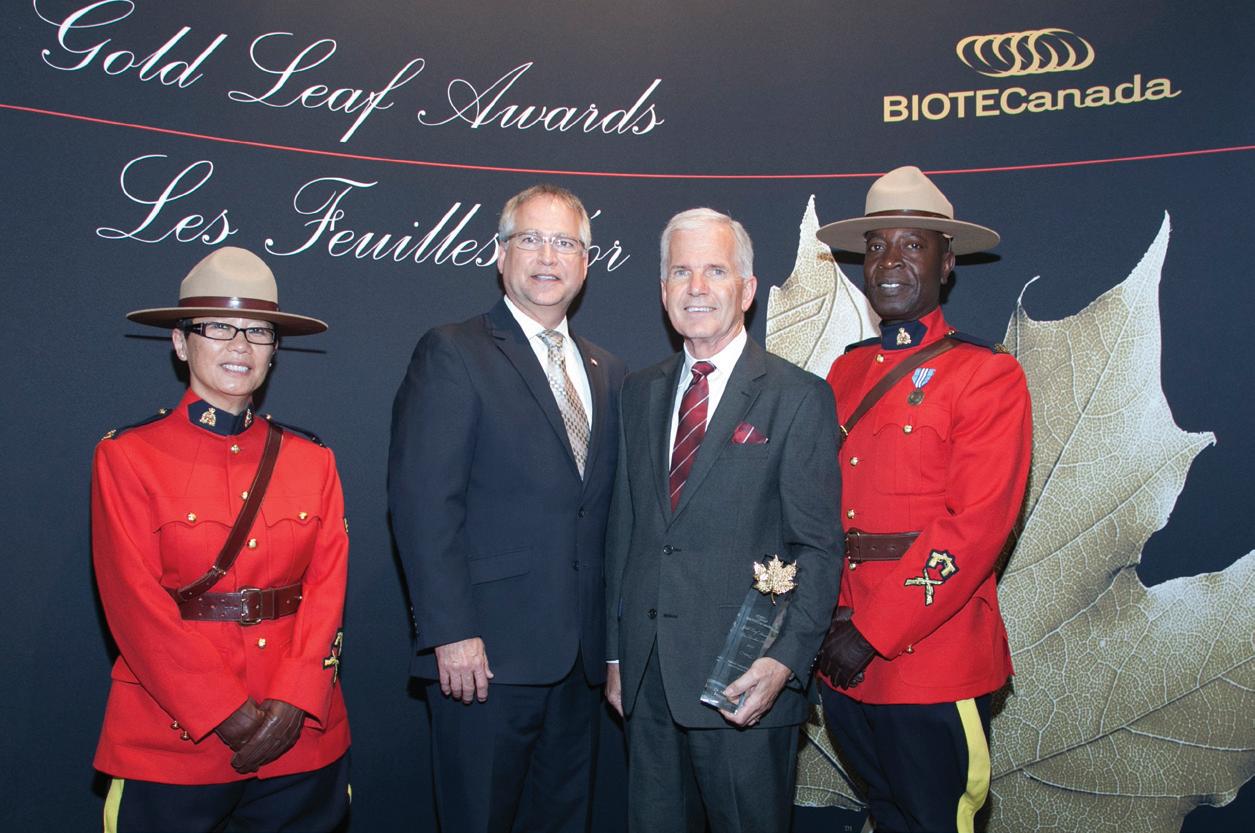
manitoBa’S Bio BuilDer
Dr. Albert Friesen: A Legacy of Leadership
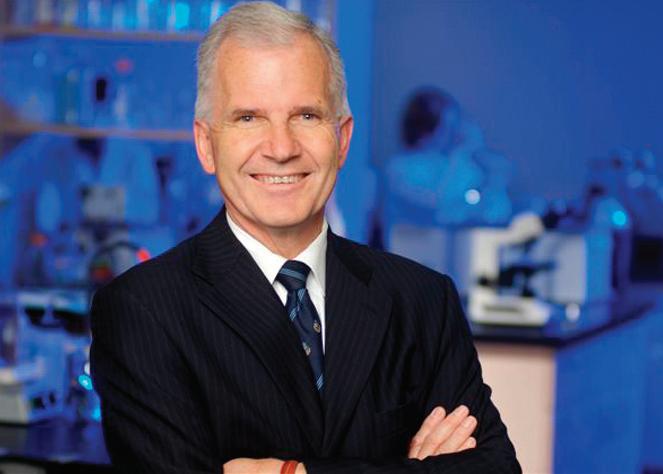
Manitoban bio-entrepreneur Dr. Albert Friesen has devoted his entire career to building the biotechnology sector in both the province of Manitoba and by extension Canada. With more than 40 years of experience in the industry, Dr. Friesen’s name is linked to some of Canada’s biggest biotech success stories, among them, the creation of Canada’s first profitable biotech company ABI Biotechnology (now Apotex Fermentation), and playing a prominent role in the development of Canada’s first biotech product WinRho®. Moreover, Dr. Friesen has been an advocate for the industry, both at the regional and national level, co-chairing the Manitoba Innovation Council and serving as a member of the Premier’s Economic Advisory Council in Manitoba. On the national stage, he was instrumental in the launch of the Industrial Biotechnology Association of Canada, now BIOTECanada in 1986, where he served as chair and founding director. Over the course of his career, he has also founded or co-founded numerous other bio-ventures, including Novopharm Biotech Inc., Genesys Pharma Inc. and KAM Scientific Inc. In all, some 16 life science companies owe their existence to Dr. Friesen.
He is in every sense of the term a pioneer on the national biotech stage and few can match his many achievements or the impact he has had as a builder for the sector.
“In a way I’ve always had that entrepreneurial spirit, creating and growing companies is something I’ve always been comfortable with and liked doing,” says Dr. Friesen. “As an entrepreneur, you’re the one putting in the hard work, taking the risks, doing the things needed to grow the business from the ground up, planning ahead and simply trying to achieve success.”
Dr. Friesen found his way to the entrepreneurial life in a unique way. The seeds of his entrepreneurial spirit were sowed many years before, not in the lab or an academic setting, but rather, as a teenager on his family’s farm.
“I was born and raised in Kane, Manitoba, a very small town. There were six kids in our family — three boys, three girls. My father had a unique way of teaching my siblings and I the value of money and hard work, the farmer’s mentality so-to-speak. When I was 10-years-old, he gave each of us the income from an acre of land as our allowance and we had to learn to manage that allowance for the entire year. In farming you live from year-to-year, you rely on weather and nature to succeed. So, there’s obviously risk involved, and a need to plan ahead and work hard. I discovered much later that biotech had similarities in that it is high risk and there are cycles of good years and bad. To be successful one has to manage the successes of


the good years to be able to sustain the lean years. So you have to learn to manage your money and assets over the long term and to plan for unforeseen circumstances. You’re in it for the long haul, just like biotech where it takes typically 13 years to develop a drug.”
Tragically, his father passed away in a farming accident when he was just 17. At that point, the lessons he had learned grew all the more meaningful as the responsibilities of looking after the farm fell to the children, which included his brother, brother-in-law and him. They were lessons he never forgot, and they shaped the rest of his life.
WinRho®: A landmark discovery in Canadian biotech
The next life altering event in Dr. Friesen’s life came not long after, when in his Grade 11 year he found he enjoyed chemistry.
“As of then, I knew I wanted to be a chemist, so I took the necessary steps and it wasn’t long (six years) before I found myself working on my PhD in protein chemistry, trying to understand the biological impact of the chemical structure of proteins.”
Like his choice to be a chemist, the realization that he wanted to become an entrepreneur came not long after, when two physicians (one being Dr. Bruce Chown) came into his lab and expressed that they were looking for a new way of making a Rh antibody, a product that prevented Rh disease, or the destruction of fetal red-blood cells, in newborns.
“At the time, if an expectant mother was Rh negative, and the father was Rh positive, the baby could be Rh positive and this was quite a concern for couples getting married. In fact, many couples were being blood typed to see whether they were even Rh compatible. So to do the research, they felt they needed a protein chemist and a lab to do the research, and so Dr. Chown asked me to get involved. I was a year or so into my PhD, and it was a tremendous opportunity.”
In 1971 he became the first employee of the Winnipeg Rh Institute.
“Although non-profit originally, it was operated like a business. As such, I was involved in the research, but also managing the business. I was 23-years-old, simply making the most of an opportunity. It was a new and exciting venture and one that would reward me tremendously going forward.”
Taking on the role of president of the company, he oversaw the development of an Rh immune globulin and eventually the creation of what would be Canada’s first biotech product, WinRho®. Today, the product is used in hospitals all over the world.
“It’s quite exhilarating for me to have been able to use the chemistry and bio information which I had, to develop a drug which actually prevents an important disease. Young people today aren’t even aware of the disease and kind of take for granted that we now have prevention for it.”
Dr. Friesen is equally as proud of the fact that he was able to run the company (which eventually became Cangene) for 20 years, and that he achieved such business success without an MBA. “Like many other scientists who find themselves in a similar position, I was tasked with learning the business side of things on the fly, and I have to say I enjoyed it, trying to understand the business and marketing side of things.”
Serial entrepreneur
Today, Dr. Friesen serves as president of Genesys Venture Inc. (GVI), a company he founded which provides the expertise for launching and managing emerging health and biotechnology ventures. The GVI concept he explains is that it acts as a technology-based business incubator, developing a partnership with the technology holders and/or investors and provide an avenue for researchers and entrepreneurs to build successful start-up companies.
“The idea behind GVI came about as a result of the experience I had with WinRho® and other start-ups and the fact that I was frequently asked to help researchers try to commercialize their discoveries. So, I formed GVI in the mid-90s as a business. How it works, for example, is a scientist comes to me and says I’ve got an idea to cure cancer, or some other disease, or they might have an idea for a great new technology. If we (the GVI team) like the idea, we take the next steps and actually form a company. In doing so we fund the company and manage all of its development as the business accelerator.”
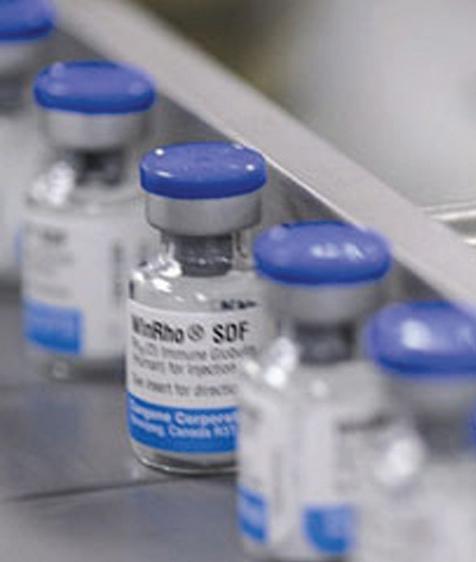

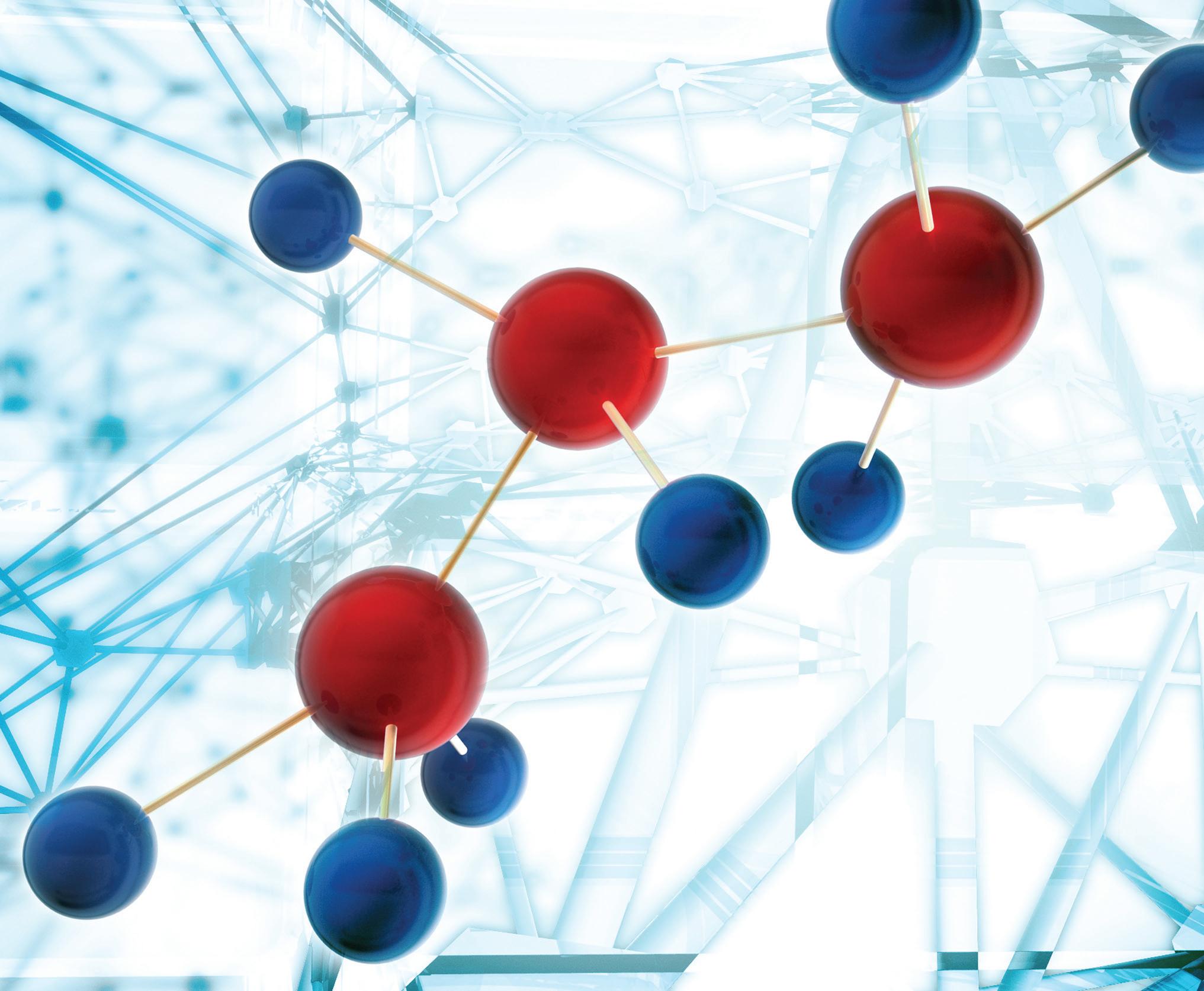
— Dr. Albert Friesen
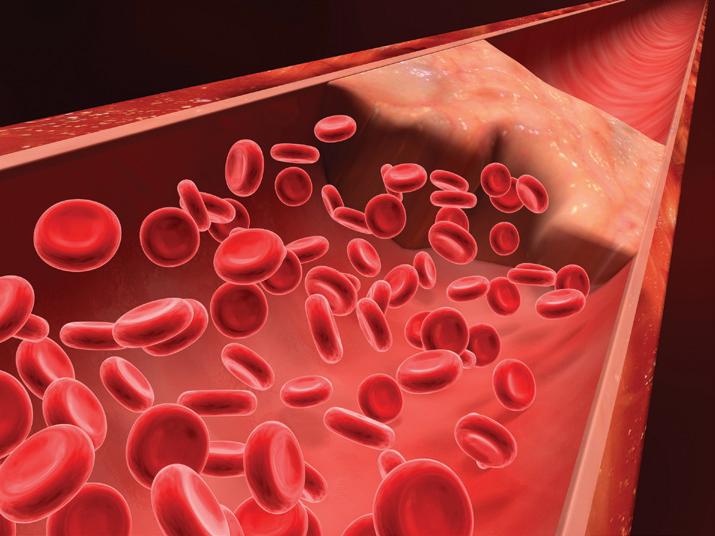
In addition to incubation, GVI provides consulting services to industry and public organizations on issues related to health technology and bio-industry development. He estimates that GVI has been responsible for the creation of a number of life science companies in Manitoba.
One such company is Medicure Inc., a Winnipeg-based cardiovascular drug discovery and development company that Dr. Friesen took a personal interest in. Subsequent to its creation, he has served as CEO and chair of Medicure Inc. since its formation in 1997.
“My involvement in Medicure came about from a simple phone call. The scientist phoned me up and said “I’ve made a discovery that could lead to a drug treatment for acute ischemia and ischemic-reperfusion injury, would you be interested in commercializing it?” So I started the company, funded the research and remained involved as the CEO, because while I enjoyed starting companies, I wanted to stick with it and take it much further this time, to try and carry forward the idea, create the product, and get involved potentially in marketing the product. We managed to raise $142 million and take the product to Phase 3 which in itself I think was an accomplishment.”
Ultimately, the Phase 3 trial didn’t work out, but the company in the meantime made several other key moves including purchasing the US commercial rights to AGGRASTAT (tirofi ban HCl), a cardiovascular drug, in 2006 from Merck. AGGRASTAT, in combination with heparin, is indicated for the treatment of acute coronary syndrome. Already on the market, the drug has carried the company fi nancially, providing a necessary revenue stream to continue work on other drugs in various stages of development in its pipeline.
One such drug is Tardoxal™, a naturally occurring small molecule drug that is in development for a neurological condition known as Tardive Dyskinesia (TD). Tardoxal has demonstrated activity on a number of biological factors believed to be responsible for TD. Medicure has conducted extensive research and development activity with the molecule and established its safety profi le in clinical trials enrolling over 4,000 patients. The product is currently being evaluated in a Phase 2 proof-of-principle clinical study.
In addition to growing sales for AGGRASTAT, Medicure is also currently developing a transdermal delivery formulation of AGGRASTAT for which the product is undergoing a clinical trial right now to broaden its label. The transdermal delivery has several benefi ts over intravenous delivery to offer patients and to optimize patient care, including ease of administration, possible reduction in costs and potential for new indications.
Giving back to the sector
In addition to operating these two companies, Dr. Friesen continues to mentor and work with dozens of entrepreneurs. He believes mentorship is integral to developing the industry, and it’s a role he has embraced.
“For a mentorship to work, it requires more than just checking in with people. By that I mean there’s a line of thinking that good mentorship is simply hiring a number of experienced CEOs to come and meet with a young entrepreneur once a month for an hour and I’m not a big fan of that. Mentorship is more than just meeting once a month for an hour to share some war stories, you really have to walk people through, to take them through the challenges.”
In his 40 years in the business, he’s learned many lessons and has plenty of war stories to tell. The advice he gives entrepreneurs is that they need to be brave, work hard and be tenacious in order to succeed.
“I think it takes four things to be successful in starting a company. One is you need good technology. Good management is also quite critical, particularly having experienced management. It also takes a lot of capital and that’s probably been the biggest hurdle I’ve faced as an entrepreneur. Lastly you have to have the ability to sustain the hurdles that will be encountered. This fourth item is what I call either luck or staying power, you have to have the ability to sustain ups and downs in any kind of business. There are going to be problems that you encounter that are unforeseen. The question is do you have the management skills or fi nancial resources to overcome those hurdles. Sometimes it’s just about making the most of your opportunities.”
Adding to the many accolades that already honour his status, including: Distinguished Alumni of the University of Manitoba and the Order of Manitoba, Dr. Friesen was presented with the Industry Leadership Gold Leaf Award by BIOTECanada at this year’s BIO International Convention. Yet, out of all his accomplishments, what he is most proud of is his family.
“My wife, three daughters, son-in-laws and grandchildren are the most important parts of my life. I mentioned earlier that the development of WinRho was very rewarding to me. When we started clinical trials in 1975 for WinRho, one of the fi rst 1,200 patients was my wife and it protected one of our babies. Now my three daughters, who each had three babies, each received WinRho to protect their babies. For that, I’m truly thankful.”
To see this story online visit www.biotechnologyfocus. ca/?p=8716






